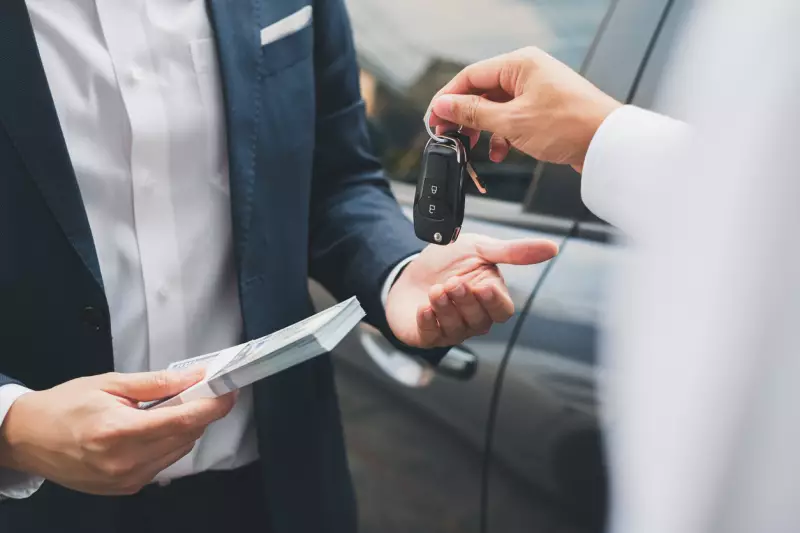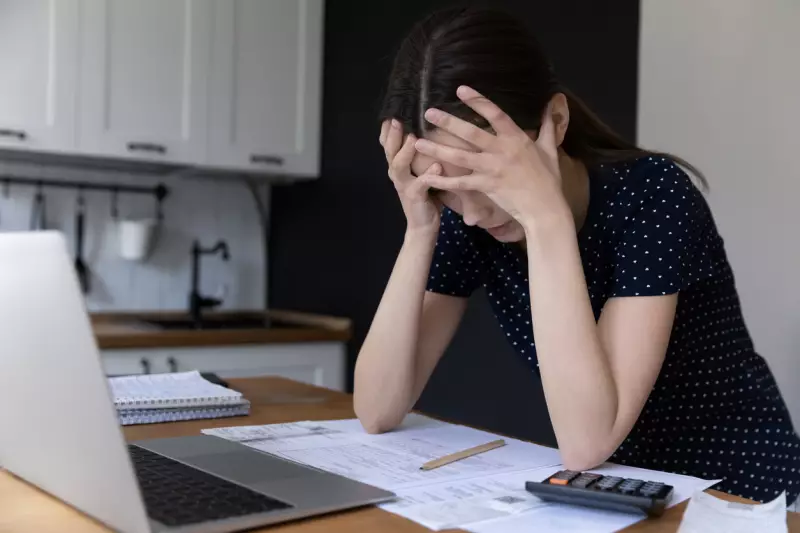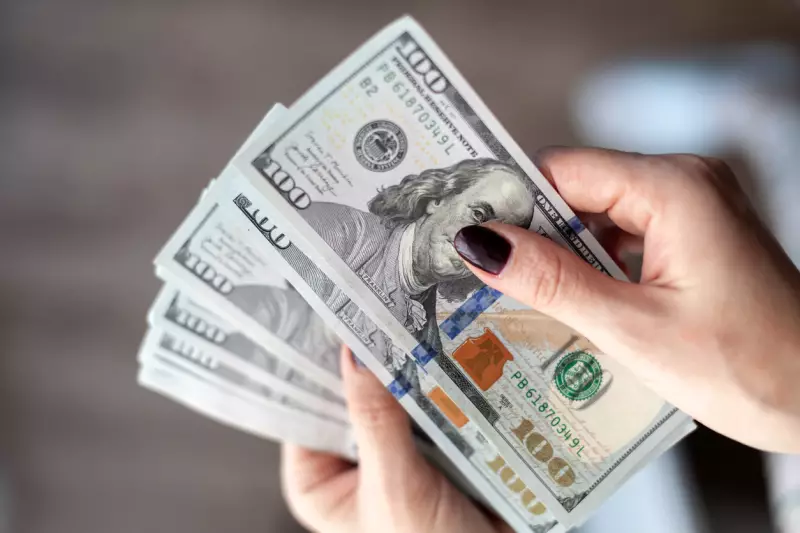
Purchasing a car outright can be stressful and using cash doesn't make the process much easier. Many dealerships dislike cash, preferring their customers pay via a safe bank transfer or financing plan. That being said, sometimes paying cash for a car is the only viable option. You can also sometimes save money by buying a car with cash, provided you take the right steps beforehand. And If you keep quiet about buying with cash until you decide on the price, you can get a lower final price.
What Does It Means To Buy A Car With Cash?
Buying a car with cash means purchasing a vehicle without financing it through a loan or other credit arrangement. Instead of making monthly payments to a lender, you pay the full purchase price upfront with money you already have, directly to the seller.
This transaction can be conducted using physical currency, a cashier’s check, a personal check, or an electronic transfer, representing the total cost of the vehicle including taxes and fees. This approach can simplify the buying process, potentially provide more negotiating power, and save you money in the long term by avoiding interest charges associated with auto loans.
How To Pay Cash for a Car
If you decide you want to buy with cash, you still have to learn how to do it. Paying cash for a car follows much the same process as using any other payment method, starting with sitting down and deciding what kind of car you need. This initial stage involves considering various factors such as the car's purpose, desired features, brand reliability, fuel efficiency, and overall maintenance costs. Once you have a clear understanding of what you're looking for, the next steps include setting a realistic budget based on your financial capabilities and the total cost of ownership. Make sure you understand the purchase process, and if you don't, work with a dealer that can handle most of the steps for you. You should also thoroughly investigate any vehicle you plan on buying and look at a car history report to be sure there are no issues with the vehicle.
Pros and Cons of Paying Cash for a Car
If you're looking to purchase your next vehicle, you might be considering whether you should buy a car for cash or you should take out a payment for your next vehicle. This decision isn't as obvious as you may think, and you need to consider all the pros and cons of buying a car in cash before you make the purchase.
The Pros
There are many real-world benefits to buying a car using cash. Knowing what the main benefits are will make it easier for you to decide to get out of your checkbook and make the purchase.
1 - No Interest Payments
One of the most significant benefits of buying a car with cash is that you won't pay any interest on it. Generally, car loans don't offer the best interest rates. If you would pay more in interest on your car loan than what you can get by investing your money, it's better to pay cash for a car and avoid the interest costs associated with a loan.
Skipping interest isn't always a good enough reason to make a cash purchase though. When buying a car with cash, you could actually cost yourself more money if you have access to excellent interest rates. If you can get a rate lower than what you would earn by investing that same money, you'll cost yourself money by buying with cash rather than taking out a loan.
Always consider what interest rates you can get auto loans at when deciding whether you want to buy with cash or not. If you have excellent credit, you may want to consider a loan, but if the interest rate is at an uncomfortable level of 6% or more, you could save money by buying outright rather than taking the payment.
2 - No Payment of Any Kind to Deal With

Making regular car payments takes money out of your pocket each month, and it's one more thing for you to remember. If you don't want to deal with the additional maintenance that comes with upkeeping an auto payment, you can skip it by buying your next car with cash.
3 - You'll Have More Cash Available

Whether you want a large emergency fund for problems that come up or you want the assets available to capitalize on an investment opportunity, it's good to have some cash available. If you only have enough money saved to purchase a vehicle, and you won't have much left over, you may want to take out an auto payment instead of buying with cash. You never know when you'll need cash for something else, and it's important to always have some available. Don't let an outright vehicle purchase be the thing that depletes your savings account.
The Cons of Buying a Car with Cash
There are some real cons associated with buying a vehicle with cash too. You should be aware of these as well before you make a cash purchase for a car.
1 - You May Have to Get An Older Vehicle
When you buy with cash, your purchase price is likely going to be more limited. Even if you have huge savings, you're more likely to buy a used vehicle that's more affordable when you're purchasing with cash. While buying cars with cash may help you save money on your next auto purchase, it could also leave you with a less reliable vehicle. If you can't afford a car that's only a few years old with low mileage, you should probably take out an auto payment instead. If you're wondering if you should pay cash for a car, the answer is only yes if you can get a good vehicle with the cash you have. If you can't, you shouldn't buy a vehicle that way.
2 - Miss the Chance to Build Credit
When you maintain an auto payment well, your credit enjoys a boost over time. Proving you can make car payments regularly will help enhance your credit and give you more purchasing power in the future. If you don't already have amazing credit, taking out an auto loan can be a quick way for you to raise your score. If you're buying a car with cash, you're missing that opportunity completely.
3 - You'll Have Less Purchasing Power
When you consider, is it better to pay cash for a car, you also need to consider what else you would do with that money if you weren't spending it on a vehicle? If you don't have a significant amount of extra cash, you may want to use it for something other than an auto purchase instead. With the extra money, you can make investments; you could start a business; you could make important repairs on your home. It's always good to have extra money available, and when you buy with cash, you're giving up some of those cash reserves.
Buying a car with cash can be an excellent way to save yourself money and simplify the purchase process. You have to decide whether it's beneficial or not to make a cash purchase and then go through the steps to complete that purchase yourself.
Paying Cash for a Car Frequently Asked Questions
How Much of a Discount Should I Get For Paying Cash For a Car?
Some dealerships will offer a percentage off your purchase for paying the money up front, and you'll also forgo the need to make monthly payments. This means you won't have to pay interest or any fees, which can save you money in the long run.
Why You Should Never Pay Cash For a Car
Buying a car with cash can leave you with inadequate savings, which can be disastrous in the case of a financial emergency. Some dealerships also won't accept cash, as they find it a more suspicious form of currency.
How Long Does it Take to Buy a Car with Cash?
Buying a car with cash is usually faster than working out a financing deal. With a lease or a loan you need to establish terms and discuss your options with an agent, where cash buyers can be in and out of a dealership in as little as an hour.
Is it Better to Finance or Pay Cash for a Car?
If you want to soften the financial blow of owning a car, financing is usually a better option. Paying cash means thousands, or tens of thousands, of dollars leaving your account all at once. With a lease or loan, you can make affordable monthly payments and keep your accounts at a healthier level. You can even calculate these lease or loan payments ahead of time with free tools, like the one available from GoodCar.




















